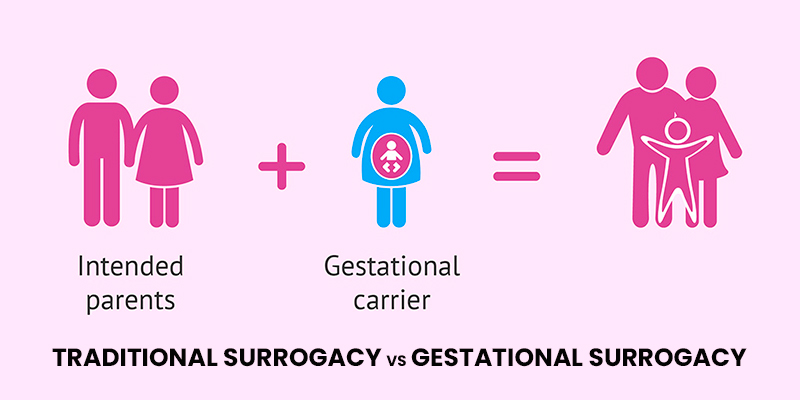Your step by step guide to the best surrogacy center in Bihar, Patna
Gestational surrogacy refers to the process in which one individual carries and gives birth to a child on behalf of another individual or couple. The procedure is often carried out using in vitro fertilization (IVF). However, the individual who is carrying the pregnancy does not share any genetic ancestry with the child. You can get surrogacy treatment at the best surrogacy center in Bihar, Patna
Best Surrogacy Clinic in Bihar
US Fertility is a reputable clinic known for surrogacy services in Bihar, specifically in Patna. Surrogacy is when a woman carries a baby for someone else who may have difficulty conceiving. This clinic offers high-quality medical care and assistance for couples or individuals looking to have a child through surrogacy in that region. They have experienced doctors, advanced technology, and support services to help people achieve their goal of having a baby through surrogacy. truly it is the Best Surrogacy Clinic in Bihar, Patna
Understanding surrogacy in Patna, Bihar
The process of gestational surrogacy involves another individual carrying and delivering a child for the benefit of another couple or individual. These individuals are referred to as gestational surrogates or gestational carriers, and they are the ones who carry the pregnancy. A couple or an individual who has the intention of being the child’s parents is referred to as the intended parents or the intended parent.
Through the process of in vitro fertilization (IVF), the majority of pregnancies that are carried by a gestational surrogate are obtained. In vitro fertilization (IVF) is the process of creating an embryo in a laboratory by using an egg and sperm from the intended parents or from a donor egg and/or sperm. In the following step, the embryo is transferred to the uterus of the carrier. It is impossible to establish a genetic relationship between the carrier and the kid because the gestational carrier does not contribute an egg to the process. surrogacy in Patna, Bihar is like a boon for infertile couples.
It is important to understand the distinction between a surrogate and a gestational surrogate.
Traditional and gestational surrogacy are the two types of surrogacy that are available.
There is a type of surrogacy known as gestational surrogacy, in which the surrogate, also known as the carrier of the pregnancy, does not have any genetic connection to the fetus because they did not contribute the egg that was utilized for fertilization or the pregnancy itself. This type of pregnancy involves the use of either the egg of the intended parent or an egg from a donor. It is the gestational surrogate who is responsible for carrying the pregnancy to term and delivering the baby. This particular form of surrogacy is the most common. The majority of the time, the child is genetically connected to at least one of the parents, but the carrier is not related to the child. Since this is the case, the procedure is less complicated legally.
The traditional method of surrogacy involves the carrier of the pregnancy having a genetic connection to the fetus on both sides. Through the use of their eggs, the pregnancy is created, and they are the ones that carry and deliver the baby. After that, they are required to relinquish their parental rights to the child’s intended parents (or parent) because they are the child’s biological parent. This form of surrogacy is prohibited in a number of places and is fraught with a great deal of legal issues.
Which individuals opt for gestational surrogacy?
Many individuals or couples choose to grow their families with the assistance of a gestational carrier. When a gestational carrier might be required as follows:
- Because of a problem with their uterus, a prospective parent is unable to have children.
- Because of a serious physical or psychiatric condition that puts either the intended parent or the fetus in danger, the intended parent is not permitted to become pregnant or to give birth.
- A woman who has undergone a hysterectomy and does not have a uterus or who has a uterine abnormality in their body.
- People who are biologically incapable of conceiving or having a child, such as a single person or a gay male couple, are not considered to be the intended parents.
In order to use a gestational surrogate, what are the steps involved?
Through the process of in vitro fertilization (IVF), the embryo is generated using the eggs and sperm of the intended parents (or donors) in the case of gestational surrogacy. After that, the embryo is transferred to the surrogate who will act as the carrier of the pregnancy. The act of choosing a carrier is the first step in the procedure. In the following step, the intended parents and the carrier both sign legal contracts and undergo a variety of medical and psychological screenings together. The in vitro fertilization procedure will start once that is completed.
An attempt to locate a gestational carrier
Meeting with a surrogacy agency to discuss the procedure and the expenses of treatment is something that the majority of people who are interested in surrogacy do. A gestational carrier can be found for you with the assistance of this agency. By doing so, it facilitates the formation of legally binding agreements (contracts) between the intended parents and the carrier. Those who act as intermediaries between the carrier and the intended parents are known as agencies. Depending on their preferences, some couples or individuals opt to have their friends or family members carry their pregnancy. In most cases, this is acceptable; nonetheless, there may be additional layers of emotional complexity involved in selecting someone you know.
- An individual who is in good health and is between the ages of 21 and 45 (ideally younger than 35).
- Individual who has had at least one pregnancy but no more than five pregnancies and has delivered their child at full term without any difficulties.
- An individual who has not undergone more than three cesarean sections for childbirth.
- is at a weight that is suitable for them to maintain.
- All additional standards that have been established by the surrogacy agency.
For the carrier to be able to cope with the additional stress that comes with pregnancy, it is ideal for them to have a stable familial situation that provides sufficient emotional support. Carriers will have fulfilled the requirements of a comprehensive background check. In order to ensure that they are able to afford gestational surrogacy, intended parents are often required to disclose some financial information.
For the purpose of gestational surrogacy, medical screenings
It is required that both the intended parents and the carrier undergo a medical evaluation, which should include a screening for psychological problems such as depression which should be conducted with the assistance of a psychologist.
Those who are carrying a pregnancy should get a thorough medical examination to confirm that they are in good health to carry the pregnancy. Moreover, it is recommended that they undergo blood tests that check for the following:
- Syphilis is a disease.
- It is gonorrhea.
- Chlamydia is a disease.
- Hepatitis B and C are both present.
Additional vaccinations, such as those for measles, mumps, and rubella (MMR) and Tdap (diphtheria, tetanus, and pertussis), should be up to date for those who have the disease. In some cases, vaccination against COVID is prescribed. A genetic screening will be performed on the intended parents, as well as the egg or sperm donors, in order to determine the likelihood that the child will be born with a congenital disability such as Down syndrome.
The procedure taken by the law for gestational surrogacy
Before in vitro fertilization (IVF) can begin, legal documents need to be finalized. Things such as the following are included in the agreement:
- Following the delivery of the baby, the gestational carrier will hand over the child to the planned parents.
- The duty and responsibilities of the carrier throughout the pregnancy, including but not limited to not using drugs or alcohol while pregnant, attending prenatal visits, and other similar obligations.
- Pay and remuneration are essential.
- The termination of the pregnancy, the death of the fetus, and other sensitive matters are included in this category.
- Every single danger and liability that is connected to in vitro fertilization, pregnancy, and delivery.
- There are a great number of additional scenarios and potential outcomes that could have legal repercussions.
Surrogacy laws differ from state to state. To assist you in navigating the legal aspect of the procedure, which can be difficult to understand, your surrogacy agency or attorney can be of assistance. The use of a group of seasoned attorneys and the drafting of contracts are two surefire ways to ensure that surrogacy is considered official from a legal standpoint.
How does a woman who is carrying a pregnancy become pregnant?
Your healthcare professional will collect your eggs and carry them to a laboratory where they will be fertilized with the sperm of your spouse. There are instances in which donor sperm or donor eggs are utilized. The woman who is going to be the parent will take fertility medication in order to create as many eggs as feasible for fertilization in the event that she uses her eggs. When sperm fertilizes one or more eggs, the result is the formation of an embryo.
Fertility medication is administered to the gestational carrier in order to get the uterus ready for accepting an embryo. Following the formation of the embryos, they are then placed into the uterus of the gestational carrier.
In the process of gestational surrogacy, who are the individuals involved?
The process of gestational surrogacy involves a number of individuals, including:
- A person who carries a pregnancy.
- They are the intended parent(s).
- Egg or sperm donors are available.
- The agency that handles surrogacy.
- The fertility center.
- Lawyers or legal counsel are used.
- Women who give care during pregnancy, such as obstetricians and midwives.
- These are suppliers of mental health services.
- Genetic counselors are available.
The use of a gestational carrier is associated with a number of dangers.
It is possible for individuals or couples who employ a gestational carrier to be exposed to certain hazards. Among the most typical dangers are the following:
- No assurance that the pregnancy will be successful or that it will be carried to term.
- These are the potential dangers that reproductive treatments and medical procedures pose to the intended parents or the carrier.
- In vitro fertilization (IVF), medical treatments, legalities, and compensation all carry a possibility of financial risk.
- The psychological aspect of the danger of having a miscarriage, problems, and other health conditions.
- A sense of helplessness due to the fact that one does not have control over the carrier, the pregnancy, and other things.
The carrier is also exposed to potential dangers. All throughout their pregnancy, they are required to receive normal prenatal care. All of the risks associated with pregnancy issues, such as high blood pressure, diabetes, and infections, are passed down to the carrier person. A pregnancy that is carried by another person can be emotionally taxing, time-consuming, and difficult for the spouse or children of the person carrying the pregnancy. Even though most carriers are delighted to assist a couple or individual in becoming parents, it is still possible for them to develop feelings of attachment to the baby after delivery.
To what extent does the utilization of a gestational surrogate lend advantages?
It is feasible for individuals or couples to have the opportunity to expand or develop a family through the use of gestational surrogacy when it is not possible to do so due to biological or physical constraints. This is frequently a dream come true for those who, in the absence of this opportunity, would not be able to become parents owing to issues with their uterus, physical or psychological illnesses, or their marital situation.
Will the baby be able to be kept by a gestational surrogate?
It is not possible for a gestational carrier to abort the baby. Before beginning fertility treatments, the intending parents and their gestational carrier each sign a legal contract that covers the terms of the agreement. After the baby is delivered, the agreement stipulates that the carrier is obligated to hand the child over to the infant’s intended parents. There is no biological tie between the carrier and the kid, and the carrier does not have any parental rights.
How much does it cost to use a gestational surrogate?
Legal fees, medical expenses, agency fees, remuneration for the carrier, geographical location, and other incidental charges are some of the many diverse aspects that contribute to the overall cost of surrogacy
Final words
When a surrogate is not related to the kid they are carrying, this type of surrogacy is known as gestational surrogacy. At the present time, it is the most common type of surrogacy. It assists thousands of individuals in expanding their families when they are unable to do so due to biological or physical limitations. In order to complete the process, you will need to locate a carrier, fill all the necessary paperwork and legal agreements, and then transfer the embryo to the prospective carrier. In spite of the fact that it is a lengthy and difficult process, it is frequently the only way for certain individuals to experience motherhood. A conversation with your healthcare professional about the procedure, the charges, and how to get started is something you should do if you are considering gestational surrogacy. When you ask for further information the best surrogacy center in Bihar, Patna, they will typically be able to direct you.


